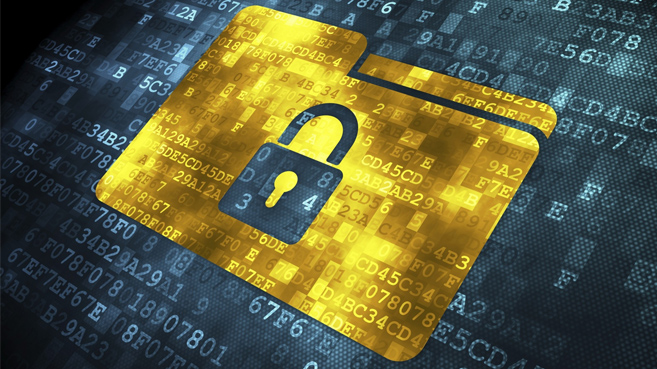
04-09-2024 | Noticias-en
Parliament has just approved a new law establishing a regulatory framework for crimes committed in the digital environment, with the aim of addressing the challenges posed by cybercrime. This legislation will provide tools to prevent and punish illegal digital activities, in a challenging context with the emergence of new forms of crime.
The law is structured into four main chapters:
I. Classification of computer crimes
Defines and penalizes new illegal conduct:
Cyberbullying: This occurs when electronic means (such as the Internet, social networks, text messages, etc.) are used to persistently stalk, monitor or try to approach another person, seriously disrupting their life.
Computer fraud: occurs when electronic means are used to deceive another person and obtain a financial benefit, causing harm to the victim (for example, unauthorized transfers, use of cards).
Computer damage: This occurs when a person destroys, alters or disables computer systems with the aim of causing damage. This may include, for example, deleting files, introducing viruses, or blocking access to computer systems.
Unlawful access to computer data: criminal conduct consisting of unauthorized access to third-party computer systems in order to obtain, manipulate or distribute the information contained therein.
Unlawful interception: This occurs in cases of total or partial interception of communications that are in transit through computer networks or systems.
Data breach: This occurs when a person, using any type of technology, accesses, appropriates, uses or modifies confidential information of third parties without their authorization.
Identity theft: occurs when a person falsely assumes the identity of an individual or entity, using social networks, emails, bank accounts, digital platforms and any other computer system that allows obtaining personal information and access credentials.
Device abuse: This occurs when a person creates, acquires, introduces into the country, sells or provides to other individuals, programs, credentials or passwords whose main objective is to facilitate the commission of a crime.
II. Prevention and education measures
It establishes the obligation of the State to promote awareness campaigns on computer security and to foster education in cybersecurity. It also provides mechanisms for collaboration between the public and private sectors in the implementation of preventive measures.
III. Cybercriminal Registry
It enables financial intermediation institutions and electronic money issuing entities to create records of people involved in illegal activities in cyberspace. In this context, the law exempts these entities from banking secrecy, so they can share their records among themselves and with the competent authorities in order to file complaints or take steps to prevent and mitigate cybercrimes.
IV. Prevention of non-consensual transactions
It empowers financial intermediation institutions and electronic money issuing entities to freeze funds in client accounts originating from unknown and unauthorized transactions from third-party accounts.
This new Law will surely promote, among others, the following aspects:
Strengthening the legal framework and prevention: provides authorities with tools to investigate and punish these crimes more effectively. Prevention and education measures should help reduce their incidence.
Tools for the financial system: grants the financial system the power to, among other measures, freeze accounts in the event of unauthorized transactions, enabling timely action to prevent or mitigate their effects.
International cooperation: establishes a legal framework that enables international cooperation, facilitating the exchange of information and assistance between countries. It also brings Uruguay closer to joining the “Budapest Convention”, an international treaty designed to combat cybercrime.
For it to come into force, it remains for the Presidency to promulgate it and publish it in the Official Gazette (coming into force 10 days later).

22-03-2024 | Noticias-en
Uruguay leads international rankings in terms of transparency and lower perception of corruption in the region.
According to the Corruption Perception Index for the year 2023, prepared by the non-governmental organization Transparency International , Uruguay is perceived as the most transparent country in Latin America, with a total of 73 points out of 100 possible (where 0 is equivalent to a perception of high levels of corruption), consolidating its leadership position in the region as it has done in previous years. With this score, Uruguay is placed in 18th place out of a total of 180 countries, with Canada being the only American country that surpassed Uruguay with a score of 76 points.
According to the Transparency International report, “ more than two-thirds of countries obtain a score of less than 50 out of 100, which indicates that they have serious corruption problems. The global average is stuck at just 43 points, while the vast majority of countries have made no progress or have declined in the last decade .”
Likewise, according to the 2023 Democracy Index (prepared by The Economist Intelligence Unit ), Uruguay ranks 14th globally, and is positioned as the leading nation in democracy in Latin America. The report analyzes the situation of 165 countries, evaluating measures such as the electoral process and pluralism, government functioning, political participation, political and democratic culture, and civil liberties. According to this last index, Uruguay obtained a score of 8.66 out of 10 and placed first in the Latin American ranking.
The Economist assures in its report that at a global level there is a fall in democracy, while in Latin America the fall is dramatic. The index shows that just over 1% of the population of Latin America and the Caribbean lives in a full democracy, 54% in defective democracies, 35% in a hybrid regime (between imperfect and authoritarian), and 9% in authoritarian regimes.
Uruguay seems to be an exception in the global and regional panorama. Without a doubt, this privileged place in international rankings will be another of the attractive advantages to be appreciated by investors when considering their installation or stay in Uruguay.
For more information contact:

Carla Arellano | Counselor Ferrere | carellano@ferrere.com

04-03-2024 | Noticias-en
The Ministry of Labor, Employment and Social Security (MTEPS), through a ministerial resolution issued on February 16, 2024 (No. 176/2024), has determined the approval of the Regulation of notifications through electronic means.
The purpose of the approval of this regulation is to implement and regulate the notifications of administrative acts and actions issued by the MTEPS, in order to avoid violations to the parties involved, and to allow employers and workers to have full knowledge of all the procedures and procedures. socio-laboral.
This provision is applicable to all organizational units dependent on the MTEPS that use electronic means to make electronic notifications.
Types of electronic notification
Notification log
The date and time of sending the notification must be recorded, whether in the form of manual or automatic electronic notification.
Computerized means of electronic notification
Electronic notifications may be made through the following authorized means:
- Email : indicated by the user, responsible third party or legal representative of the company or labor establishment in the private sector or public sector institutions.
- Cell phone line with the active Whatsapp application : indicated by the user, responsible third party or legal representative of the company or labor establishment in the private sector or public sector institutions.
User’s responsibility to receive notifications
It is established as the responsibility of the user, responsible third party or legal person responsible for the company or work establishment in the private sector and public sector institution, to share the electronic medium so that the corresponding MTEPS unit carries out electronic notifications, as well as the use and administration of your password.
Effectiveness of electronic notification
The notification will be considered valid with confirmation of its sending to the email or cell phone line with the WhatsApp application provided by the user, responsible third party or legal representative of the company or work establishment in the private sector and public sector institution.
The confirmation will be sufficient proof to prove the completion of the notification, which will be fully valid from its sending for the calculation of the administrative deadlines; regardless of whether the recipient assigns the corresponding “read” or “received” message to the message.
Days and hours to make notifications
Electronic notifications must be made on administrative business days and hours, that is, Monday to Friday, from 08:00 am to 16:00 pm, except for holidays.
Depending on the circumstances, and under duly substantiated reasons, non-working days and hours may be enabled.
Receipt of notification
The notification will be considered to have been made on the day and time in which the public servant sends it through electronic means.
The calculation of the deadlines will begin from the business day following the notification.
The scanned documents that form part of the notification must be attached to it.
For more information contact:

Carla Arellano | Counselor Ferrere | carellano@ferrere.com

01-02-2024 | Noticias-en
The year 2024 began with important legislative developments in Uruguay regarding the defense of competition, referring in particular to the regulations for the control of economic concentrations.
On January 1, 2024, the modifications to Law No. 18,159 on the Defense of Competition (hereinafter the “LDC”) included in the Accountability Law No. 20,212 came into force. We comment below on the main developments.
I. Modifies the billing threshold applicable to economic concentrations. It goes from a joint billing of the parties, in any of the last 3 fiscal years, from 600 million indexed units (tax included), approximately 90 million dollars, to 500 million indexed units (tax-free), currently close to 75 million dollars.
II. It incorporates an exception to the prior authorization regime for low-impact operations (“de minimis” rule). It establishes that, in addition to meeting the billing threshold indicated in the previous point, the minimum individual billing (tax-free) of two or more participants in the operation must be, in any of the last 3 fiscal years, equal to or greater than 30 million indexed units, approximately 4.5 million dollars. If this condition is not met, the transaction does not require authorization. Those who take advantage of the exception must also notify the Commission about the operation. Once notified, the Commission may determine by reasoned decision, within a period of 15 business days from notification, whether the operation requires authorization. In this way, the legislator tried to prevent what some local politicians and economists called “pac-man” acquisitions (repeated acquisitions of low-billing companies) from being left out of the prior control system.
III. Incorporation of “joint ventures” to the list of economic concentration operations and definition of “control”. The new wording of article 7 of the LDC expressly includes the creation of joint ventures in the list of economic concentration operations subject to authorization (if the indicated billing thresholds are met). Likewise, a definition of the term “control” is incorporated, which is understood “as the possibility of continuously and decisively influencing, directly or indirectly, the strategy and competitive behavior of one or several entities.”
IV. Referral to the general rules of the common administrative procedure. The new wording of article 29 of the LDC establishes that in everything not provided for in said law or in its regulatory decree, the provisions of Decree No. 500/991 will apply, that is, the general rules of the common administrative procedure. Previously, the LDC only referred to these rules for the investigation of anti-competitive practices and not for the prior control regime.
The Accountability Law also establishes that the Executive Branch will approve specific regulations related to the criteria to quantify notification thresholds, as well as the requirements and conditions that notifications and requests for authorization of economic concentration must meet.
For more information contact:

Carla Arellano | Counselor Ferrere | carellano@ferrere.com

10-11-2023 | Noticias-en
All commercial promotions that promote the consumption of products or services and that designate winners by any random mechanism require prior authorization from the Consumer Defense Unit.
To date, carrying out a promotion without said authorization or in breach of any other aspect of the regulations exposed the organizer to sanctions of warning, request for suspension of the promotion or confiscation of prizes in extreme cases. And, if there are three prior warnings, the prohibition of carrying out promotions for a period of 180 days
Since the last Accountability Law, it was established that economic sanctions may also be applied. They range from 10 to 1,000 Adjustable Units, which will be graduated taking into account the offender’s background, market position and the severity of the non-compliance.
The above represents an important change by introducing the possibility of applying fines that until now were not in the list of possible sanctions, which, depending on the case, could become considerable.
For more information contact:

Carla Arellano | Counselor Ferrere | carellano@ferrere.com

19-09-2023 | Noticias-en
The Labor Inspection (IT) announced the criteria that it will use to control the Occupational Risk Plan (PRL). According to Decree 52/023, companies that employ between 5 and 50 workers must prepare the ORP carried out by a technician with a qualifying title (preventionist technician, occupational health technologist, among others), which must have the content indicated there.
The IT explains and develops the content that the PRL must have, in accordance with the following:
1. Description of the activities carried out by the company.
2. Hazard identification.
3. Risk assessment and its results by recognized and specific methods. The IT clarifies that it must be taken into account that prior to the risk assessment, an evaluation of compliance with the legal requirements that are applicable to the company and its activities should be carried out.
4. Proposed corrective measures.
5. Compliance schedule
6. Date of completion and date of the next scheduled review (minimum every six months).
7. In the document, the responsible technician must indicate whether or not he recommends the need to have a Greeting Prevention Service at Work regulated in Decree 127/014.
8. Signature and identifying data of the technician responsible for the document.
9. Signature of the owner or legal representative of the company in the PRL.
10. Proof of presentation and treatment of the ORP in the field of bipartite cooperation (Occupational Health and Safety Commission). If this bipartite scope was not established, the company must present a declaration in this regard and proof of communication to the PRL workers.
For more information contact:

Carla Arellano | Counselor Ferrere | carellano@ferrere.com





